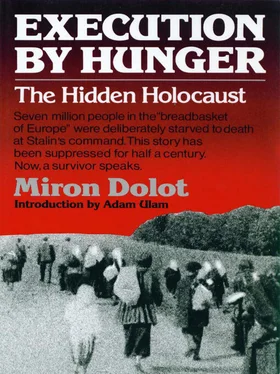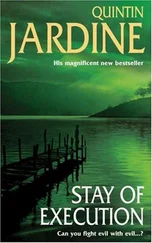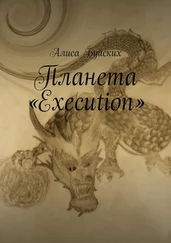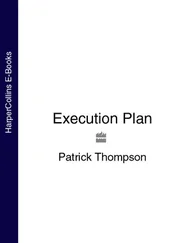“Run!” a man’s voice urged.
“Let’s go there quickly!”
And they ran as fast as they could, struggling in the deep snow, by way of shortcuts through orchards to the main road.
When my mother and I managed to extricate ourselves from the crowd stuck in the doorway, I noticed numerous houses burning in the village center. Flames rising high into the night sky were casting red reflections on the snow. Somebody shouted that our Hundred was on fire. I looked around and saw the flames engulfing the house which we had left just minutes ago.
The village was in an uproar. We could hear angry voices everywhere. Men and women were shouting, arguing. Now and then someone would be heard yelling and swearing. Some women were crying; others laughing out of sheer despair. Even the dogs, aroused by the noisy commotion, were barking furiously. From time to time, shots rang out through all this tumult. Who was shooting, no one could tell.
I was following my mother. It was difficult for her to run. She would often fall and almost completely disappear in the deep snow. But again she would struggle to her feet and try to run, and would fall again. She too was in a hurry. She was anxious to find our cow, horse, and wagon before someone else got them.
As we were approaching the village center, we met the first rioters who were returning home with their spoils: their own cows and horses. But not all of them were satisfied and happy. Those who could not reclaim all their belongings were even crying. Some of them had found their horses, but not their cows, and vice versa. Others found their horse equipment, but not their wagons. An elderly couple, who could only find their wagon, were trying to pull it themselves, but the wagon was too heavy for them. They stopped in the middle of the road, waiting for someone to help them. The old woman cried bitterly, telling everyone who would listen that they could find neither their horse nor their cow. But the majority who had found their precious possessions were quietly passing by and proceeding to their homes, as if they were afraid of losing them again.
We finally reached the collective farm. First we ran to the cattle barn. We knew where our cow was. Since the time we were forced to sign up for the collective farm, more than a month ago, we had visited her almost daily. Mother would often collect some scraps of food and secretly sneak into the barn and watch our cow munch contentedly on whatever she would give her. She would cry each time she visited the barn. Our cow meant much to us. Her milk was the main nourishment that kept us alive during the past few years. Without it, we would not have had much hope for survival.
Fortunately, we found our cow in her place. I left Mother to guard her while I rushed to the stable. But there I had no luck; our horse was gone. Then I ran to the yard where I knew our wagon had been, but it too was missing. There was no use wasting my time trying to find them, so I ran back. Hurriedly we headed home with our cow, thankful to at least have her back with us, but saddened by the loss of our horse and wagon.
Early next morning, we were awakened by the noise of heavy shooting somewhere in the village. It sounded as if a real battle was being waged there. Even artillery guns roared from time to time just as had happened a few weeks ago, when the guns were deployed in the fields north of the village, and the shells were flying over our heads, landing somewhere in the Tiasmyn River.
But even the shooting could not prevent my brother and me from going back to the collective farm to continue our search for our horse and wagon. We left home and, after dodging the main road, soon reached the church ruins. It was as far as we could dare to go. From behind the ruins, we noticed a few military vehicles in place in the square. Soldiers were patrolling the square and the streets. We could see guards at the village store and at the post office, and we could hear rifle shots far away on the outskirts of the village. We also noticed bodies lying in the blood-stained snow.
We did not know what actually had transpired in the village center during the night, but we were sickened by what we saw, and certainly not eager to pursue our initial undertaking. We decided to head back home as fast as we could.
Upon our arrival, there was nothing left for us as a family to do but to wait for what might happen next. We, the villagers, found ourselves in a very precarious and dangerous situation. We had just ruined the collective farm; some buildings were destroyed; and the greater part of our farm animals and implements were reposessed by the villagers. By our rioting, we had demonstrated our unwillingness to be members of the collective farm, and yet we had no assurance that we had won the battle. And we were still not sure if the Party representative had really meant what he had said last night at the meeting. Did he say it just to distract us from what he really had in mind? If so, what was it? There must have been a reason for everything he said.
There was also something else that bothered and worried us a great deal: were we still members of the collective farm after all that had happened? None of us, as far as I knew, had formally requested to have our membership discontinued. In that case, what was our status now? Would the Communist Party leave us alone now?
While we all waited anxiously for something to happen, news started spreading. More than twenty farmers had been shot to death in the morning following the riot. They were slaughtered while trying to take back their animals and farm implements.
The other tragic news was that another twenty people had been arrested the same morning. The young man who had actually started the riot in our Hundred was among them. All the wives, children, and other family members of the killed and arrested villagers were evicted from their homes and banished from the village on the same day. They were taken by military vehicles to the railroad station where the county Party and government officials and a train were ready and waiting for them.
A week or more passed after the riot with no further official reaction to what had happened. The all-important question of whether we were still considered members of the collective farm kept nagging us more and more. The uncertainty of what was ahead almost drove us to despair. It was a matter of life or death for us. This was the time when our farmers used to start spring sowing and planting. Now the majority of them could not do that because of the simple reason that they owned no land. On joining the collective farm, their land was collectivized and pronounced “socialist property,” and as such, it was protected by the state law. During the riot, some of the villagers were able to reclaim their animals and their implements, if they were found intact. But how could they reclaim their land? There simply was no way; the land was no longer theirs. They could work that land, but there was no guarantee that they could harvest the crop. There was no guarantee that they would even live long enough to reap the harvest. In the middle of April, about two weeks after the riot, we were finally summoned to a village general meeting, which took place in the church. During the night of the riot, someone had tried to restore it: the altar and the icons, much to our great surprise, had been saved, and were put in their original places. The Communist decorations and propaganda articles had been thrown out. The night of the meeting, however, it was a theater and propaganda center again. Red was the dominant color. A red flag was installed in place of the altar. Wherever one looked, the slogan “Death to kurkuls” could be seen. Portraits of Communist leaders hung in the place of the holy pictures again.
The meeting hall was already full when Mother and I arrived. No one spoke. The people looked haggard and worried; their faces showed exhaustion, malnutrition, and weary indifference. Everyone seemed gloomy and serious, and indeed, there was good reason for it. They knew that their future would be decided at this meeting.
Читать дальше












